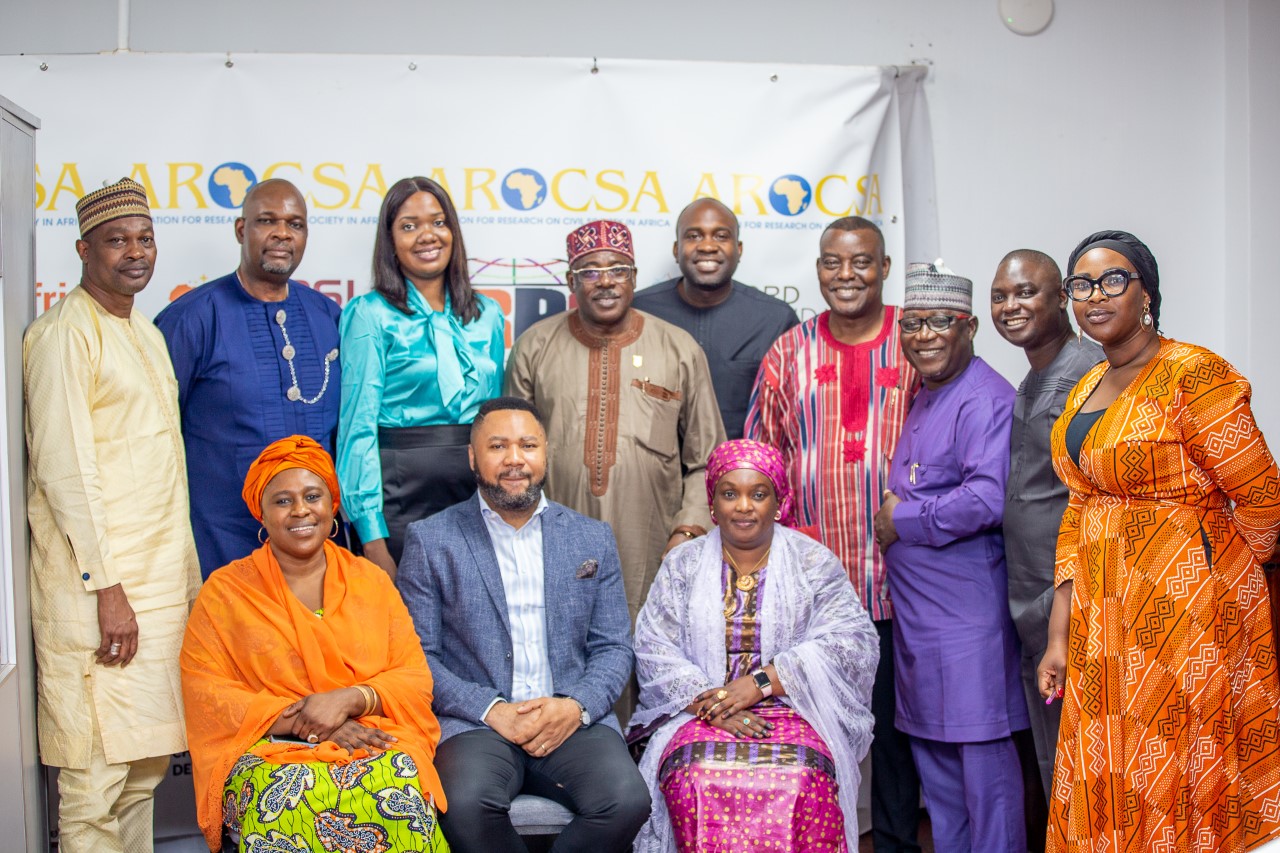At the Café De Rome Hotel, 350 meters from the Presidential Palace in Dakar, Senegal, academics, and Civil Society Organisations (CSOs) from across Africa congregated at the Association for Research on Civil Society in Africa (AROCSA) conference. Throughout the two-day conference, they discussed how their work impacts the continent’s development, particularly, the various ways CSOs safeguard and support human and environmental health in Africa.
Stronger together
CSOs play a critical role in influencing health policies, with the aim of improving health outcomes in Nigeria. They support the government’s efforts to improve healthcare for all Nigerians, especially for women, children, and other vulnerable groups. While also holding them accountable to deliver on their commitments. However, not every CSO has the capacity to meaningfully engage government to achieve the desired outcomes. They require adequate investment to build the relevant skills in public health policy advocacy.
This was the driving force behind the development Research and Projects Centre (dRPC) mission to strengthen the organisational and technical capacity of CSOs. This will enable them to design transformative and sustainable development policies which engage government, and address the needs of the vulnerable, such as women, girls and children. Several CSOs have benefited from these capacity-strengthening interventions which are carried out through the Partnership for Advocacy in Child and Family Health at Scale (PACFaH@Scale) project which started in 2017.
Identifying local CSOs with relevance in specific areas of interest is an important first step, said Major General Obashina Ogunbiyi (Rtd), Project Director of the Alumni Association of the National Institute of Strategic Studies PACFaH@Scale project (AANI-PAS). As a strategic think-tank of the federal government, the project builds their advocacy capacity to effectively engage with government. This is followed by identifying capacity gaps and carrying out multiple trainings to close the gaps. “The training sessions help these CSOs get the buy-in of other stakeholders working in that thematic area,” he said.
PACFaH@Scale project
The PACFaH@Scale project is a health accountability network of Nigerian CSOs working to catalyse national and state governments to make adequate provision for child and family health, through evidence-based advocacy for domestic financing, and building champions within the executive and legislature arms of government. It focuses on six key areas: capacity building, family planning, routine immunisation, childhood killer diseases, primary healthcare under one roof, and developing champions within the government.
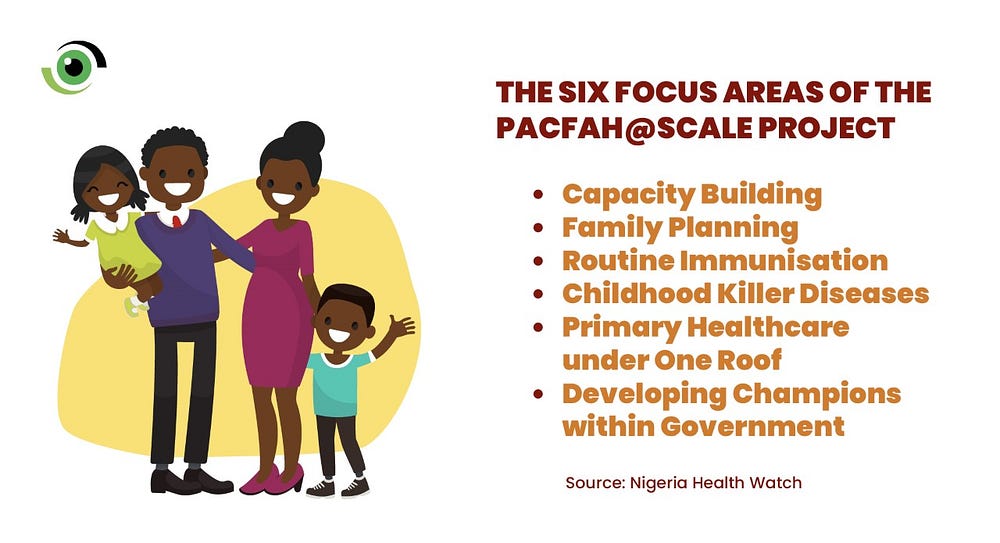
“Among other things, the project supports CSOs to advocate for local and innovative financing models to shift from dependence on donors,” said Dr Stanley Ukpai, Director of Projects, dRPC. CSOs in Africa are encouraged to ensure that governments move away from funding health expenditure through aid and loans, towards innovative domestic sources. Strengthening the policy and budget advocacy skills of CSOs is critical to achieving this goal.
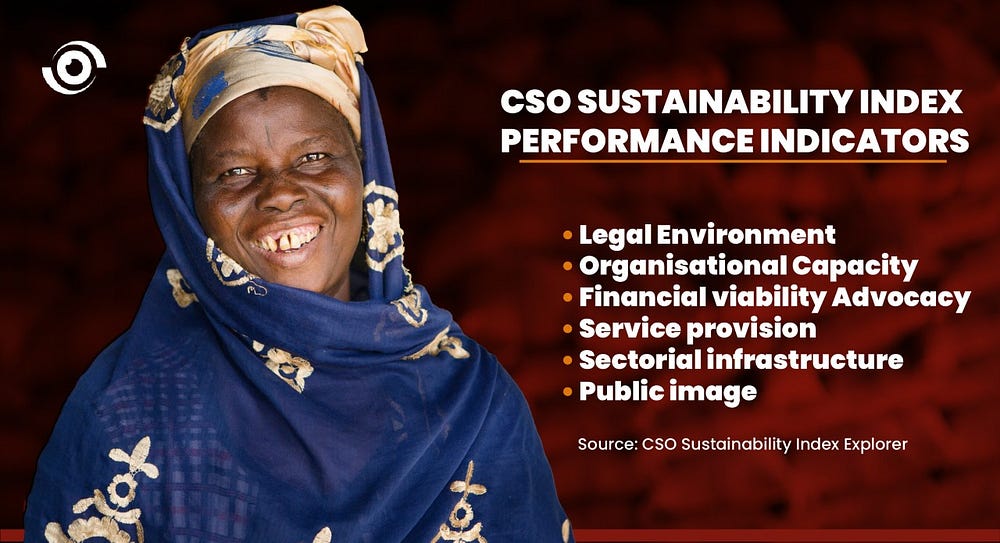
Leading change, sharing lessons
The 2020 CSO sustainability index indicated a 1.1 point growth in the advocacy capacity of Nigerian CSOs between 2009 and 2020. The advocacy pillar, which measures the ability of CSOs to influence public opinion and policy, revealed that they have continued to achieve important lobbying successes at the federal and state levels. An example shared in the index discussed how collaboration between the Center for Gender Economics in Africa (CGE Africa) and the Federal Ministry of Women Affairs and Social Development ensured that women were part of the Presidential Task Force on COVID-19.
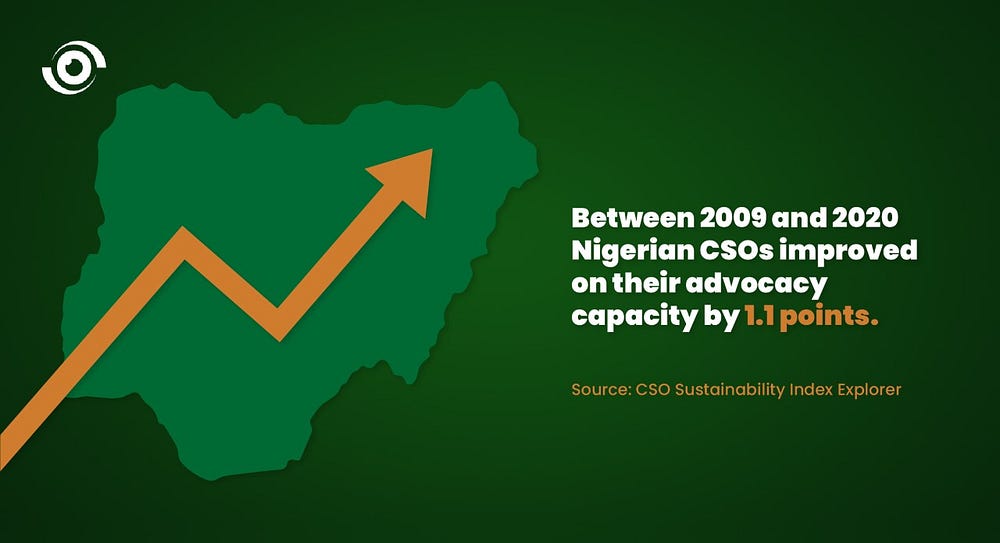
CSOs that work across different states, adopt a vital ‘pause and reflect’ strategy, where they learn about one another’s work, as well as their successes and challenges. Before the AROCSA conference, dRPC convened an experience-sharing meeting in partnership with the Sustainability Centre of the Lagos Business School. This provided CSOs with an opportunity to share learnings from five years of participating in the PACFaH@Scale project. Some of the participants now took these learnings to the AROCSA conference in Dakar to share with their colleagues from across Africa.
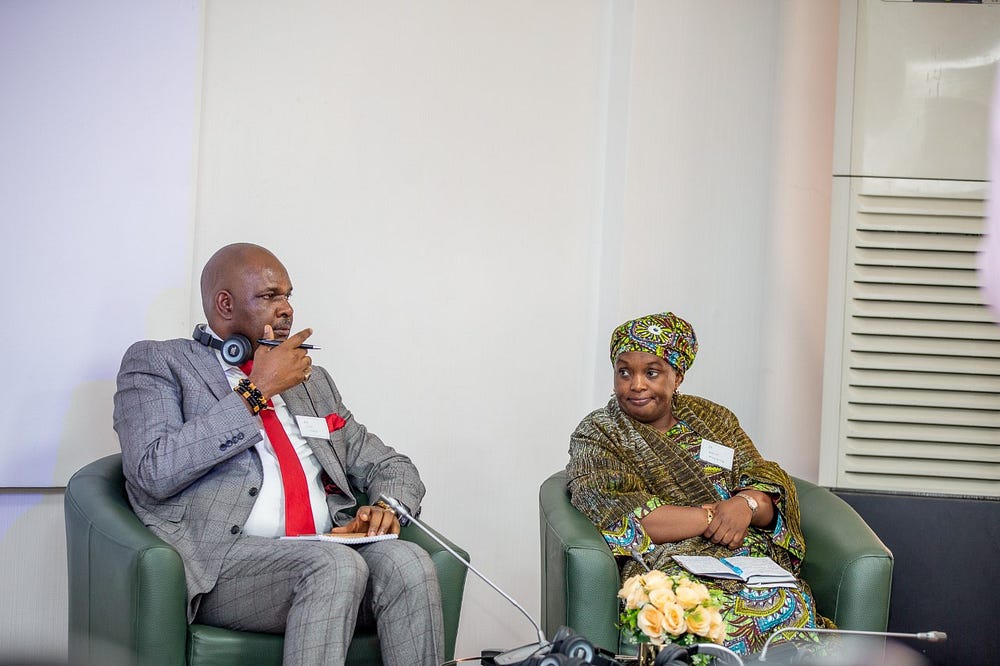
Connecting research to practise
Dr Esi Ansah, AROCSA board member stated that the conference connected research outputs from academic institutions to practice, as it brought together academics with large repositories of work, CSO practitioners who focus on addressing needs and don’t pause to document and share lessons, and governments who usually implement policies based on generic campaign promises and popular demand instead of evidence.
In his keynote speech, Professor Mbo Ndiaye, Director of the Institute of Public Policy at Université Cheikh Anta Diop de Dakar, said that effective communication is foundational for better community dialogue and participation, therefore, governments must invest in building trust with the populace and deliver social services to ensure peace and stability.
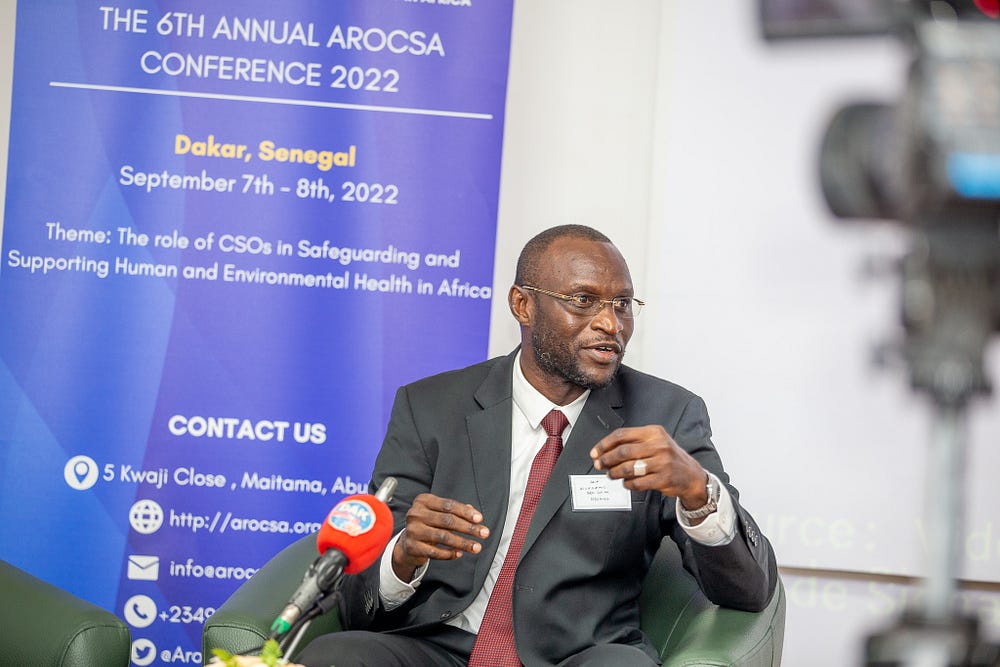
Dr Rahila Aliyu Mukthar, Project Director of the Kano State chapter of Medical Women’s Association of Nigeria (MWAN), said the PACFaH@Scale project is equipping Nigerian CSOs to be better advocates through collaborative work. “There are sub-grantees working on various issue areas, but we put out our messages as a coalition, so that it will have more weight,” she said, adding that the project has empowered CSOs with the skills to hold government decision makers accountable to their promises.
On ways the project impacts efforts at the Federal level, Dr Salma A. Ibrahim, Director of Family Health at the Federal Ministry of Health, said dRPC’s strategic engagements led to the development of policy documents such as the Nigeria family planning blueprint. The document articulates strategies for resource mobilisation and tracking family planning service delivery. But beyond the national, the partnership with dRPC also reaches the state level, which is the primary point of service delivery, she added.
Major Gen. Ogunbiyi (Rtd), said the alumni association came into the PACFAH@Scale space in 2019, and through data-driven advocacy to key government officials, contributed to improve Lagos State’s Primary Healthcare Under One Roof (PHCUOR) ranking from 34 to 26. Their advocacy provided more clarity on the nine specific domains used to assess the PHCUOR program. The state also adopted the Abuja declaration, resulting in a health budget increase from 6.6% of total budget in 2019, to 10.17% in 2022. This resulted from the collective effort of CSOs including AANI-PAS.
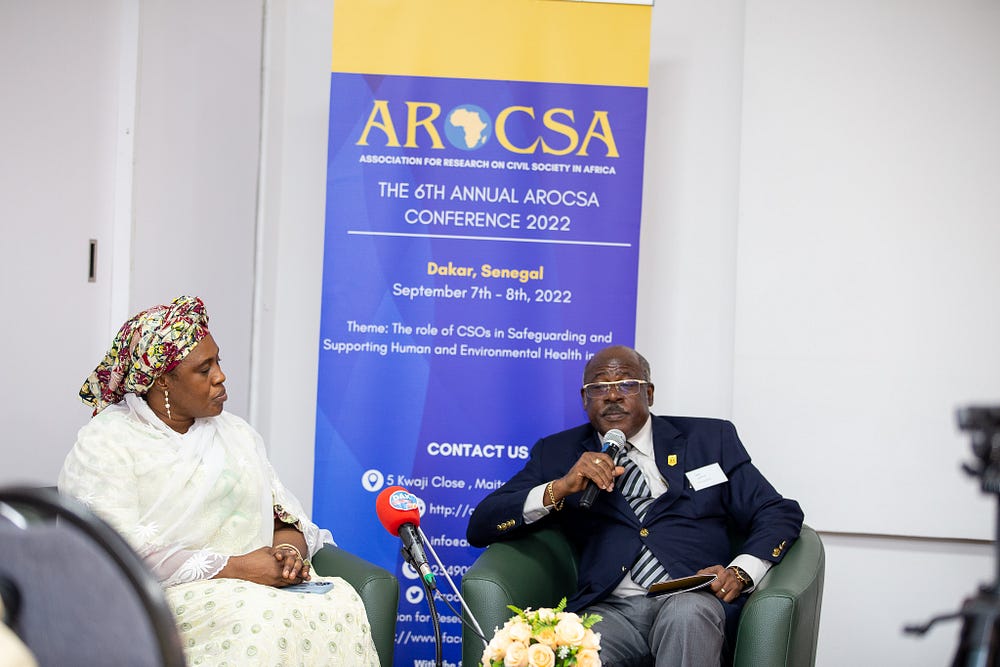
Beyond advocacy, Ogunbiyi said they also provided technical guidance to the Lagos State Ministry of Health. “We were part of the State Emergency Routine Immunisation Coordination Centre (SERICC), and technical working group for family planning.” In this capacity, they helped develop the state’s 2019–2023 mid-term cost implication plan for family planning.
‘Doing our part’
According to Ukpai, Nigeria is at a point where CSOs now have a leading voice regarding policy development and implementation in partnership with the government; however, getting the CSOs to this point was not a walk in the park. First, it was critical to find the relevant CSOs that had some level of influence to ensure that investments were made in the right places. Getting their buy-in required significant investment of time and resources.
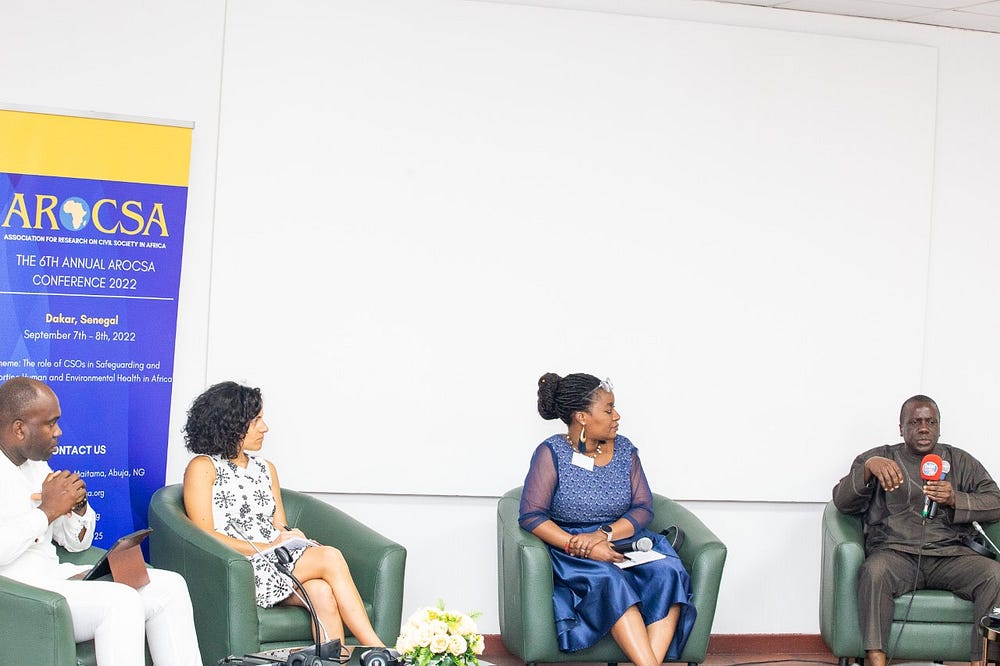
Other private sector experts, CSO practitioners, and academics also shared insights from their work. Ekenem Isichei, CEO of ACIOE Associates summarised the reason why everyone should be involved in governance and data sharing. “Government doesn’t have all the funding, so we must begin to look at alternative sources and also do our part to address the many issues Africa is grappling with.”
‘Doing our part’ involves ensuring that CSOs that have a better contextual knowledge of their communities make a concerted effort to support the government towards achieving health for all. It means that organisations like the dRPC with the resources to support these CSOs continue to make investments to scaleup impact. It also means the government being open to learning and using data and evidence to make decisions and develop policies.


